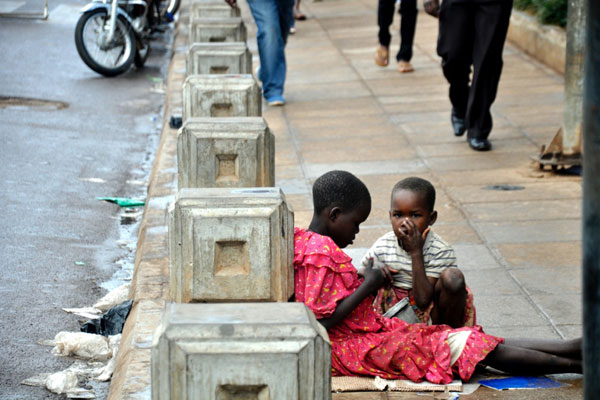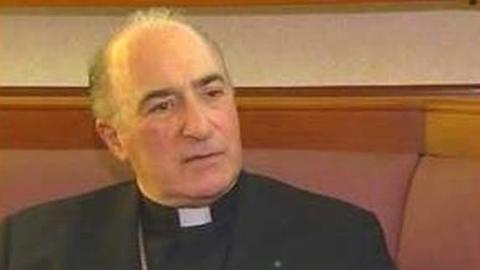Child abuse on the rise in eastern - report

MBALE. Children continue to be exposed to high levels of abuse among them physical, emotional and sexual violence in eastern region, latest findings show.
In Tororo District, at least 152 children were defiled, and 144 cases of neglect and 32 cases of child labour were registered between 2016 and 2017.
Only 51 cases were presented to court and five were concluded with judgment, according to research by Tororo District Youth Advocacy Network with support from Uganda Youth Network and Plan International.
Statistics from World Vision indicate that in Mbale District, 56 per cent of girls are married off before the age of 18 and 40 per cent of the working population are children aged between five and 15. The figures cut across other districts.
Ms Stella Imukutet, the acting Tororo District chairperson, says many children in the rural areas are routinely subjected to sexual and emotional violence, which is one of the factors responsible for stunted growth and poor academic performance of pupils and students in the sub-region.
“Children experience violence at the hands of the very individuals responsible for their protection and well-being,” she says.
According to research, due to child abuse, out of 13,066 boys in Primary Six and Primary Seven, 8,880 drop out while out of 12,901 girls in the same classes, 9,008 drop out annually in Tororo, Butaleja and Busia districts.
This partly explains why these districts perform poorly in national examinations.
In the recently released Uganda Certificate of Education, Butaleja was the second worst performing district after Bukwo.
During the presentation of civil society organisation policy statement at Mbale District last week, the World Vision programme manager, Mr Edward Mugeni, said inadequate implementation of the existing laws on children rights is fuelling child abuse in the communities.
“The government has come out with a number of legislations to promote the protection of children but the challenge is lack of implementation, which is still a problem in Uganda as a country and Mbale as a district in particular,” Mr Mugeni said.
Forms of abuse
He said child abuse involves physical and psychological abuse, injury, neglect, exploitation and sexual abuse which are rampant and most of the cases go unreported.
“Children who survive abuse often suffer long-term physical and psychological damage that impairs their ability to learn and socialise and makes it difficult for them to perform well in school and develop close and positive friendships,” he said.
He said this has led to high crime rate and other vices such as prostitution and teenage pregnancy.
“Some of such vices have led to eventual deaths of many of the teenagers,” he added.
Ms Jackline Nambozo, a Primary Seven pupil at Namanyonyi Primary School in Mbale, says several children are vulnerable due to various forms of deprivations and violence in their homes.
“Despite the fact that the government has put in place policies to safeguard children, a significant number of children are still battered, which leaves many questions,” she says.
Ms Beatrice Makoba, the officer-in-charge of family protection police department in Elgon region, acknowledged the increasing cases of child abuse in the area.
“Cases of child abuse and domestic violence are on the increase, police in partnership with other stakeholders such as the politicians will take the frontline to educate people about the dangers of child abuse in the communities,” she says.
Mr James Etukeit, a leader in Iteso cultural institution, says the government should work with cultural institutions to protect children, adding that children should also play their part of reporting such cases to concerned authorities.
“In order to win this, the government must work directly with cultural institutions to enforce regulation against child abuse,” he says.
Ms Sabano Samali Apiat, the assistant chief administrative officer of Tororo District, says the district has partnered with churches, NGOs and all civil society organisations to embark on policy enlightenment of advocacy structures to sensitise communities on child right’s and standards.
“The partnership will scale up sensitisation campaigns targeting both leaders and members of the community to address issues of child abuse and gender based violence,” she said.
According to the 2015 survey by AfriChild, a research agency, 70 per cent of females and males experience physical violence in childhood, with more than 90 per cent experiencing multiple incidents of violence.
The study was carried out in northern, western, central and eastern with a sampling population of 368 female and 400 male between the ages of 13 and 24.
The Mbale District chairperson, Mr Bernard Mujasi, says sensitisation programmes on child abuse, especially sexual maltreatment should be scaled up, saying it is a deep-rooted evil eating up communities.
“Violence against children is recognised internationally as a serious public health, human rights, and child protection concern,” he says.


 +256 75 7629 603
+256 75 7629 603

